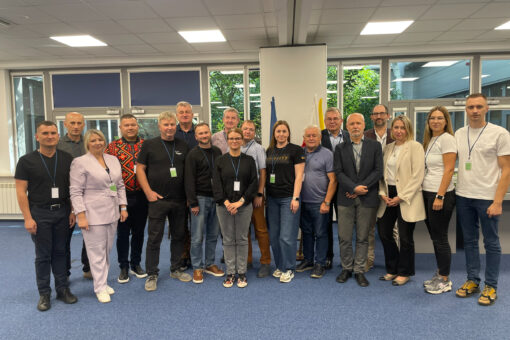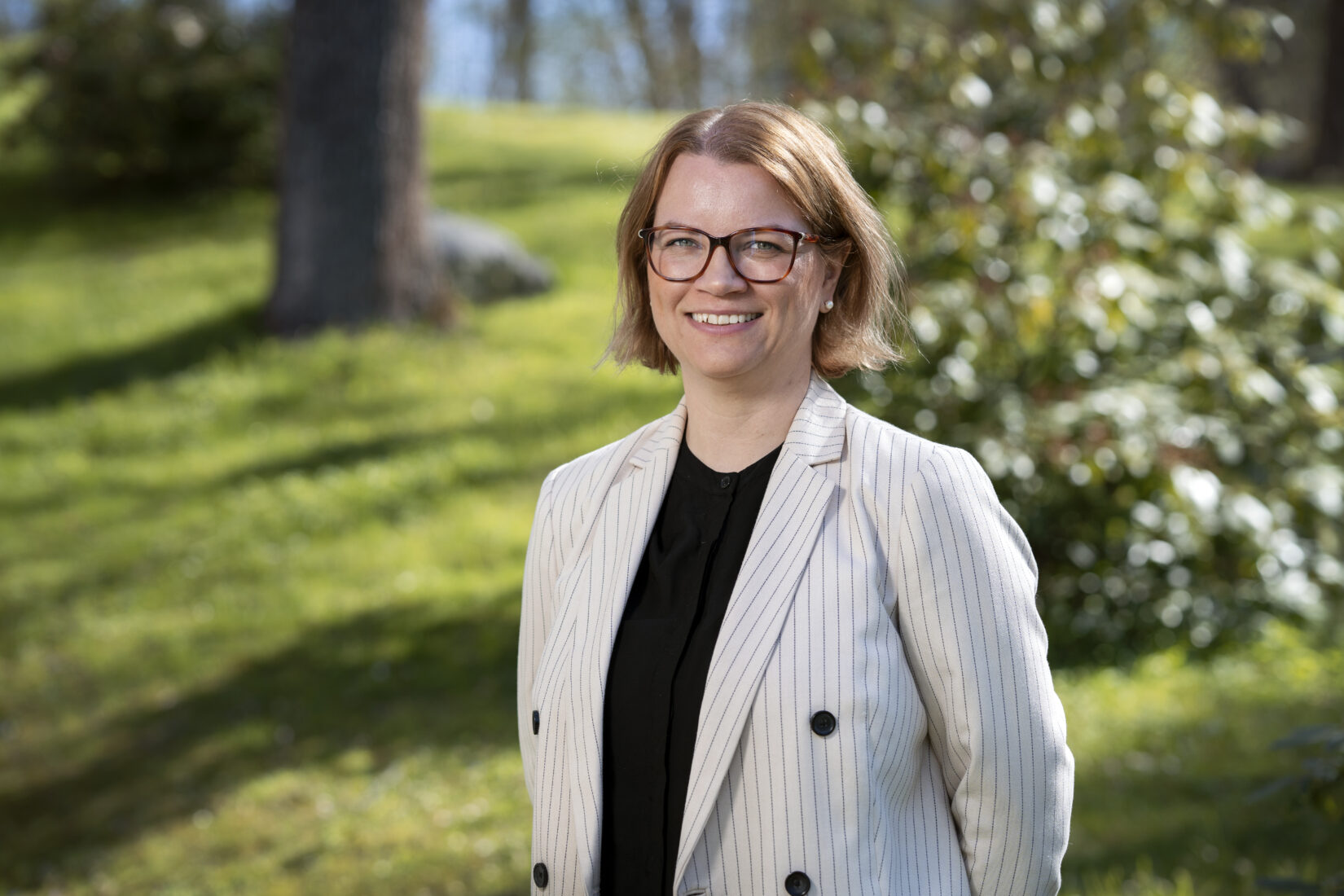Hello Klara Westling, expert in wastewater and environmental issues at Svenskt Vatten! You have just hosted a delegation of twelve people from Lviv, Ukraine, for an exchange on water and wastewater. Can you tell us more about that?

It’s an SI-funded project that supports Ukraine in its efforts to prepare for future EU membership, where a functioning and sustainable water and wastewater infrastructure is a crucial part. Over the course of the year, the project group has conducted five workshops, with speakers from Sweden and Poland contributing their expertise. The focus has been on finding solutions to reduce the strain on the Vistula River, which flows through Poland and into the Baltic Sea.
What many don’t know is that several rivers in western Ukraine flow into the Vistula. The river is also a source of drinking water in Poland, making it very important for the country. Since the Vistula flows into the Baltic Sea, it affects all the countries around the Baltic. It’s a win-win situation for the countries around the Baltic Sea to work towards cleaning the waterways in western Ukraine, as this reduces the burden on the Baltic Sea.
What challenges does Ukraine face in the water and wastewater sector?
Ukraine has several challenges in this area. The war is severely impacting infrastructure, with a lot of it destroyed and needing to be rebuilt. The rest of Ukraine is working on adapting its legislation to align with EU laws and to meet the requirements of EU membership. Many EU directives are related to water and wastewater issues and impose high standards for wastewater treatment. There’s a significant gap between Ukraine’s current system, where treatment plants are mainly in larger cities, and the countryside, where water often flows untreated into waterways.
You could see how interested the Ukrainians were in the smaller facilities we visited in rural Sweden. In Ukraine, treatment plants are primarily found in cities, so there’s a great need for expansion in rural areas. They were very curious about how these systems can be designed and how to ensure their functionality even when staff can’t always be on-site, explains Klara Westling.
What lessons can we in Sweden take away from this?
We’ve learned a lot about how Ukrainians have managed infrastructure during crises and war, which is something we need to prepare for. One key lesson is that access to drinking water is crucial during war, but this can be resolved by distributing clean water via tank trucks. However, without functioning water for showers and toilets, serious sanitation problems arise. A temporary solution in Ukraine was to use lake or seawater in the water systems. In the long term, this isn’t ideal because the salt causes pipes to rust, but it worked as a short-term fix.
It’s important for us to share our experiences. It’s also about the valuable knowledge we gain from our colleagues. By cooperating with Ukraine and Poland, we can all contribute to developing sustainable water and wastewater solutions that address both current and future challenges, concludes Klara Westling.
Facts
The SI Baltic Sea Neighbourhood Programme is a programme which provides funding to projects in which Swedish organisations work on cross-border challenges and opportunities together with organisations from the EU countries around the Baltic Sea and countries in the EU’s Eastern Partnership. Read more about the project Clean Baltic Source in our project database.
